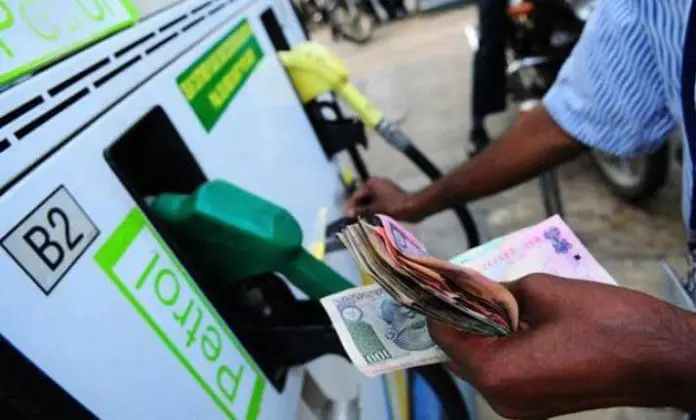
The Rs 2 per litre excise duty on unblended fuel is not likely going to impact most consumers according to officials from oil marketing companies. This additional duty on petrol proposed in the Budget 2022-23 will have to be absorbed by the oil companies instead.
Highlighting Centre’s focus, Finance Minister Nirmala Sitharaman said, “Blending of fuel is a priority of this Government. To encourage the efforts for blending of fuel, unblended fuel shall attract an additional differential excise duty of Rs 2 a litre from the first day of October 2022.”
“According to proposals, consumers that buy fuel from retail outlets of public sector undertaking (PSU) oil marketing companies (OMCs) will not be paying the differential duty. Since the onus of blending fuel with ethanol is on the OMCs, this will not be allowed to be passed through to consumers,” a senior official overseeing the ethanol blending programme told Business Standard.
It was expected that some parts of the country may witness higher petrol prices from October 1. But since there is inconsistency in ethanol blending levels across fuel depots, pricing petrol for consumers with the Rs 2 variation on some days is tricky.
“Except Andaman and Lakshadweep, there is no region in the country where unblended petrol is permanently sold at a retail outlet. Due to the lacunae in ethanol supply chain, there are instances of less than 10 per cent blending on some days. The fuel pump operator cannot be expected to sell petrol with a Rs 2 hike on days that blended fuel has not been made available. This will create confusion in pricing for consumers who will end up with varying prices on random days,” the official said adding that this penalty on PSU OMCs may not have much impact.
“The OMCs have already signed more than 130 contracts with ethanol suppliers, another 100 supply points are likely to be increased within this year itself. These will supply only to PSU companies and not to private sector players,” he added.
“There no state in the country where there is nil ethanol blending. The level of blending varies across the country and also within a state due to the constraints related to ethanol supply. There may be instances where consumers in parts of North eastern states, Jharkhand and its neighbours, and Jammu and Kashmir are getting unblended fuel. But this is due to negligible fuel blending infrastructure in the region,” the official said.
The responsibility of blending ethanol with fuel is on OMCs that procure the biofuel in bulk and then mix it with petrol at their depots. The present target is to ensure that 10 per cent ethanol blended petrol (E10) is sold across the country. India had achieved the highest-ever ethanol blend of 8.1 per cent with petrol in the ethanol supply year 2020-21 (from December to November).
Prime Minister Narendra Modi has recent set a target of achieving a 20 per cent blending target by the year 2025.